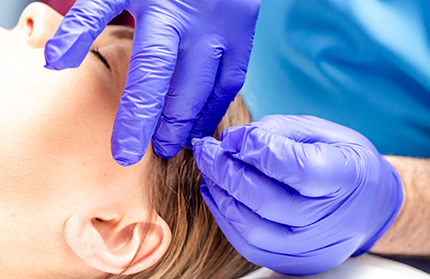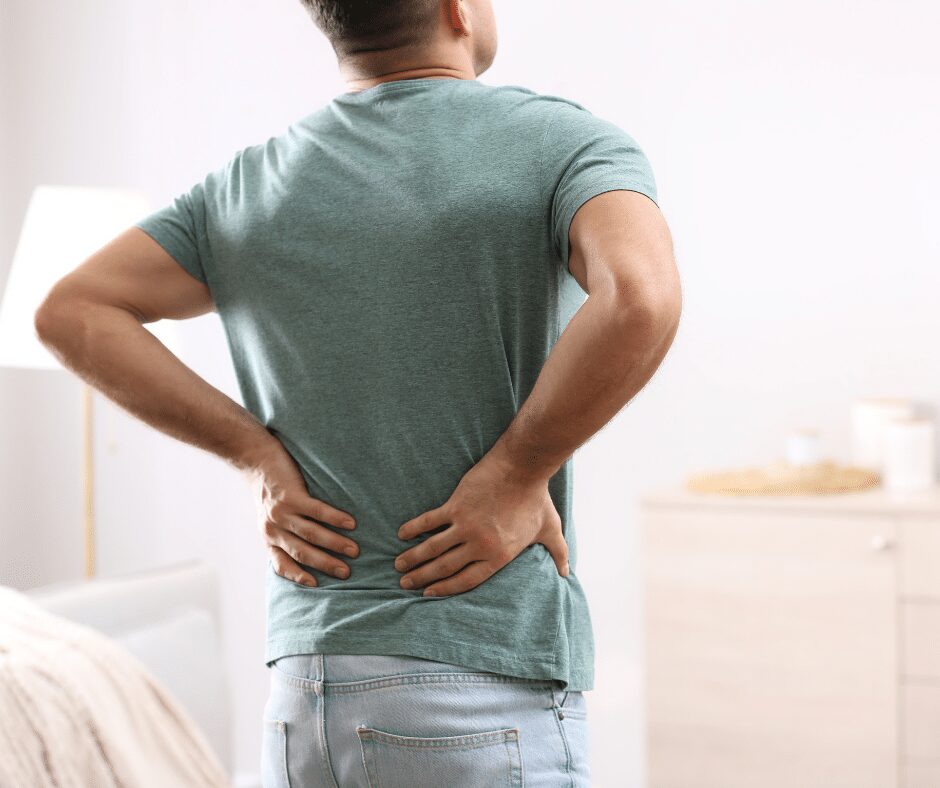HERNIATED DISC: CAUSES AND SYMPTOMS
A herniated disc can be a debilitating condition, causing pain, numbness, and weakness in the arms or legs. It can affect anyone, especially those who engage in physically demanding jobs or have a sedentary lifestyle. In this article, we will take a closer look at what a herniated disc is, what causes it, and what symptoms to look out for. We will also discuss physical therapy as a treatment option, including the benefits of physical therapy at RPI in Creve Coeur.
What is a Herniated Disc?
The spine is composed of a series of bones called vertebrae, which are separated by cushions known as discs. These discs have a tough outer layer and a soft, gel-like center. The discs serve as shock absorbers for the spine and allow for flexibility and movement. When a disc becomes herniated, the inner material protrudes through a tear in the outer layer, putting pressure on surrounding nerves. This can result in a variety of symptoms, ranging from mild discomfort to severe pain and disability.
Common Causes of Herniated Discs
There are several factors that can contribute to the development of a herniated disc. Some of the most common causes include:
- Age-related degeneration: As we age, the discs in our spine naturally lose some of their water content, making them more prone to tearing.
- Trauma: A sudden injury, such as a fall or car accident, can cause a disc to herniate.
- Overuse: Repetitive motions, such as lifting heavy objects or prolonged sitting, can put stress on the discs and lead to herniation.
- Genetics: Some people may be predisposed to developing herniated discs due to hereditary factors.
Symptoms of Herniated Discs
The symptoms of a herniated disc can vary depending on the location and severity of the injury.
- Back pain: A herniated disc in the lower back can cause severe pain in the lower back, hips, and legs.
- Numbness and tingling: The pressure on the nerves surrounding the herniated disc can cause numbness and tingle in the back, legs, arms, and neck.
- Weakness: The pressure on the nerves surrounding the herniated disc can also cause weakness in the affected limb or limbs.
Diagnosing Herniated Discs
Diagnosing a herniated disc typically involves a physical examination, as well as imaging tests such as an MRI or CT scan. During a physical examination, your doctor will look for signs of nerve compression, such as muscle weakness or numbness. Imaging tests will show the location and severity of the herniation, allowing your doctor to determine the best course of treatment.
Treatment of Herniated Disks
Treatment for a herniated disc varies depending on the severity of the condition and the individual needs of the patient. In most cases, conservative treatments such as physical therapy and pain management may be enough to relieve symptoms. However, in severe situations, surgical intervention may be necessary to relieve pressure on the nerves and restore proper function to the affected limb or limbs.
Physical Therapy in Creve Coeur
Physical therapy is one of the most effective treatment options for people with a herniated disc. A physical therapist will work with you to develop a personalized exercise program designed to strengthen the muscles supporting the spine, reduce pain, and improve the range of motion. In addition, a physical therapist can also teach you how to maintain proper posture and reduce the risk of re-injury.
At Rehabilitation Professionals, Inc. (RPI) in Creve Coeur, we offer top-notch physical therapy services to help alleviate the symptoms of herniated discs. Our experienced therapists use a combination of manual therapy and exercise to reduce pain, improve function, and prevent future injury. If you’re suffering from a herniated disc, don’t wait any longer to get the help you need. Visit RPI for physical therapy in Creve Coeur today and take the first step toward feeling better.


